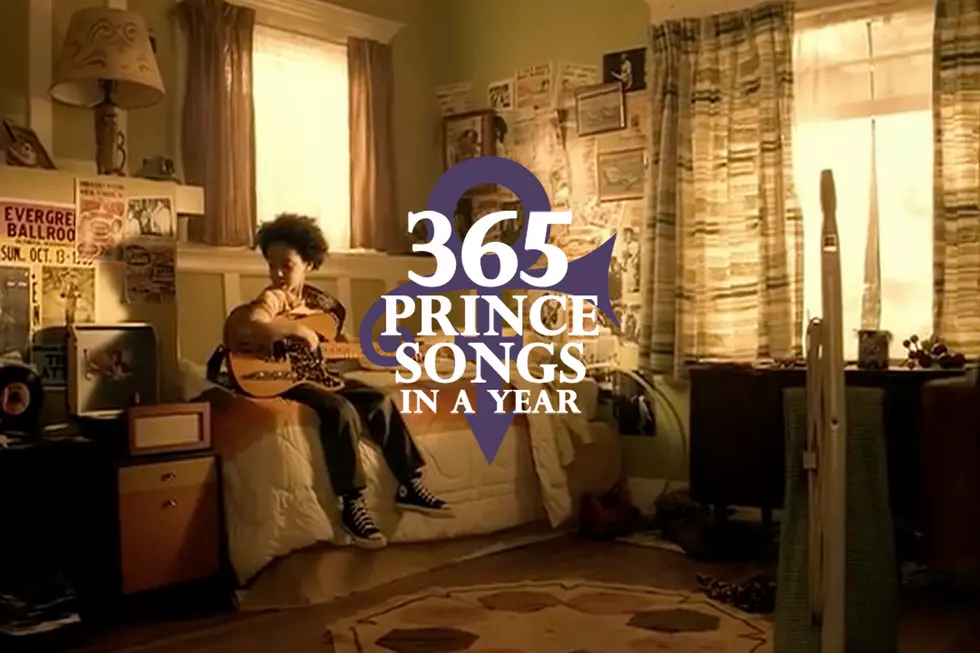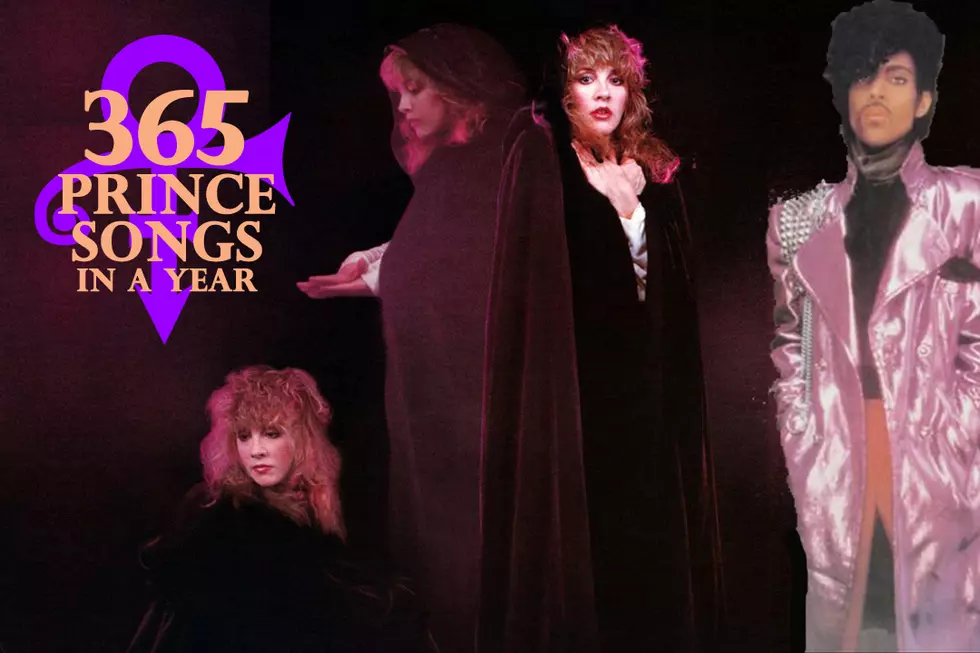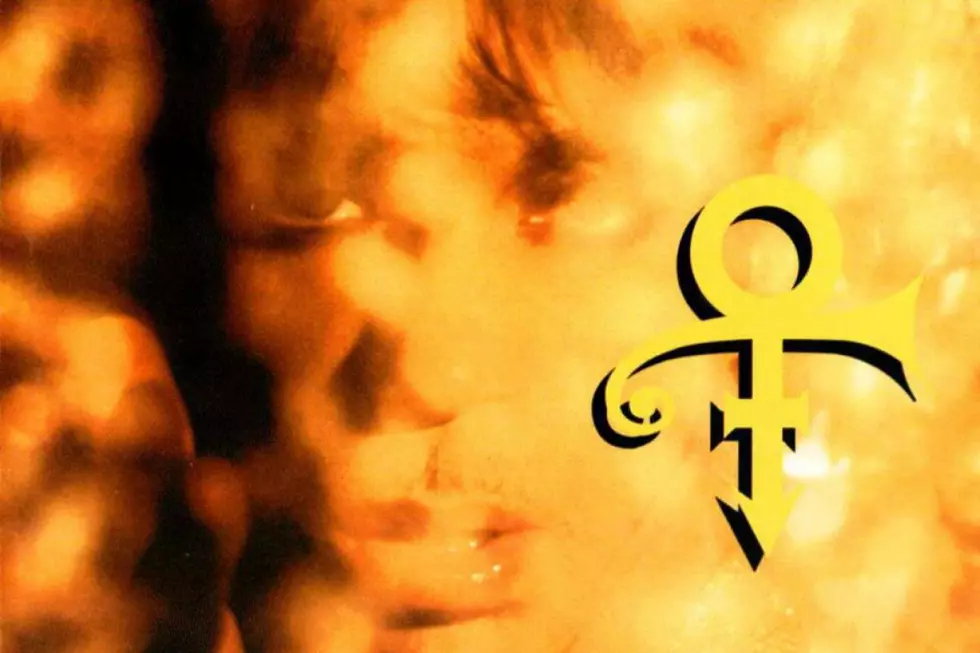
Prince Gives a Shoutout to His Heroes on ‘Musicology': 365 Prince Songs in a Year
To celebrate the incredibly prolific, influential and diverse body of work left behind by Prince, we will be exploring a different song of his each day for an entire year with the series 365 Prince Songs in a Year.
In Stevie Wonder's 1976 classic "Sir Duke," he topped the pop and R&B charts by referencing the great musicians of a past generation who influenced him, namely Louis Armstrong, Count Basie, Ella Fitzgerald and the titular "the king of all," Duke Ellington. Nearly 30 years later, Prince dusted off his own old-school jams for 2004's "Musicology."
He even followed Stevie's example by waiting until the second verse to name-check James Brown, Sly Stone and others. "Wish eye had a dollar for every time you say / Don't you miss the feeling music gave you back in the day? / 'Let's Groove,' 'September' / Earth, Wind & Fire / 'Hot Pants' by James / Sly is going to take you higher." As for hip-hop, he's down with Chuck D and Run-D.M.C.'s Jam Master Jay, who'd been killed a year-and-a-half earlier.
Even more than in the lyrics, the love for the past was reflected in the music. "Musicology" was his best ode to James Brown's funk since he sampled "Mother Popcorn" in "Gett Off." With Prince playing all instruments and handling all vocals, he gave a drum track worthy of Clyde Stubblefield, a bass line that hit the One hard, warm guitar tones from the neck pickup and occasional keyboard stabs.
Prince saw a growing disconnect between his heroes and the growing crop of musicians creating Auto-Tuned recordings that took the human element of music-making out of the equation. “I mean no disrespect,” he said to Entertainment Weekly. “But I see it as my duty to school young people coming up. Lip-synchers? What does a kid — what do other artists get out of that? I don’t mind if Mariah Carey hits bad notes.”
This was reinforced on the five-month North American arena tour, his longest since the 1997-98 Jam of the Year dates, when he regularly told the crowd that what they were hearing was "real music played by real musicians."
Musicology was Prince's return to a major label after years of releasing music primarily via the internet. His deal with Sony gave him complete artistic control, the the company had a financial incentive to put significant resources behind the album's promotion. The press-shy star also helped his own cause by doing a slew of mass-media interviews, although he forbade reporters from recording the conversations. The lessons from his battle with Warner Bros. a decade earlier had been learned.
“One advantage of writing 'slave’ on my face back then was that when I meet with a label now, they already know they’re not going to be owning anything", Prince told Rolling Stone. “Maybe at one time they could get Little Richard for a new car and a bucket of chicken. We don’t roll like that no more."
In advance of the record's April 20, 2004 release, Prince embarked on a high-profile rollout. He opened the Grammys by duetting with Beyonce, which was followed a month later by his induction into the Rock and Roll Hall of Fame, where he stole the show with a mind-blowing, guitar-disappearing solo on the Beatles' "While My Guitar Gently Weeps." Prince never went away, the high-profile performances seemed to say, but he was definitely back.
It all worked. Musicology peaked at No. 3, his first Top 10 album since 1995's The Gold Experience and his highest-charting record since Diamonds and Pearls also hit No. 3 in 1991. But despite solid rotation for the title track's video on MTV, VH1 and BET, the single stalled at No. 120 on the pop chart and No. 44 at R&B.
So why did the album sell when the single was a relative stiff? It's because Prince included a copy of the CD with the purchase of every ticket to his tour, to be picked up at the venue.* "See, if I sell 400,000 tickets to my shows, that would make me No. 1 on the charts before I even release a CD into record stores,” he told Newsweek. “You feel me? Then Norah Jones is gonna have something to worry about.”
* Sony told the New York Times said that 27 percent of the sales of 'Musicology' stemmed from ticket purchases, noting that the stunt helped retail sales because hearing that Prince had a No. 1 album caused casual fans to buy it. The practice has since become standard for legacy artists who are promoting new work, but it was unprecedented at the time. Some in the industry complained that this was unfair and, as a result, 'Billboard' and SoundScan changed their policy. Now, people could opt out of the purchase and take the cost of the CD off of the ticket. However, bundling an album with a ticket can have its consequences. The week after Bon Jovi hit No. 1 due to ticket sales, it fell to No. 169, the largest one-week drop in 'Billboard' history.
More From Diffuser.fm









